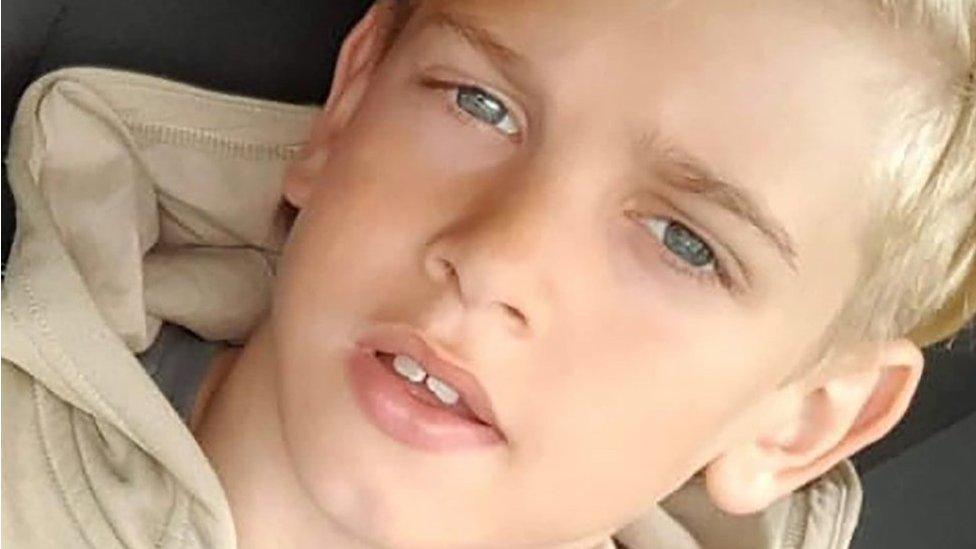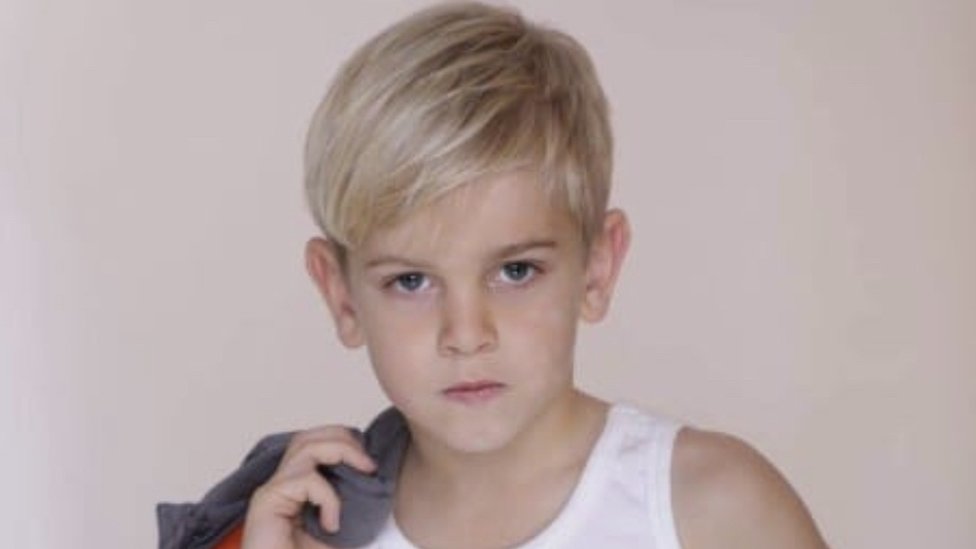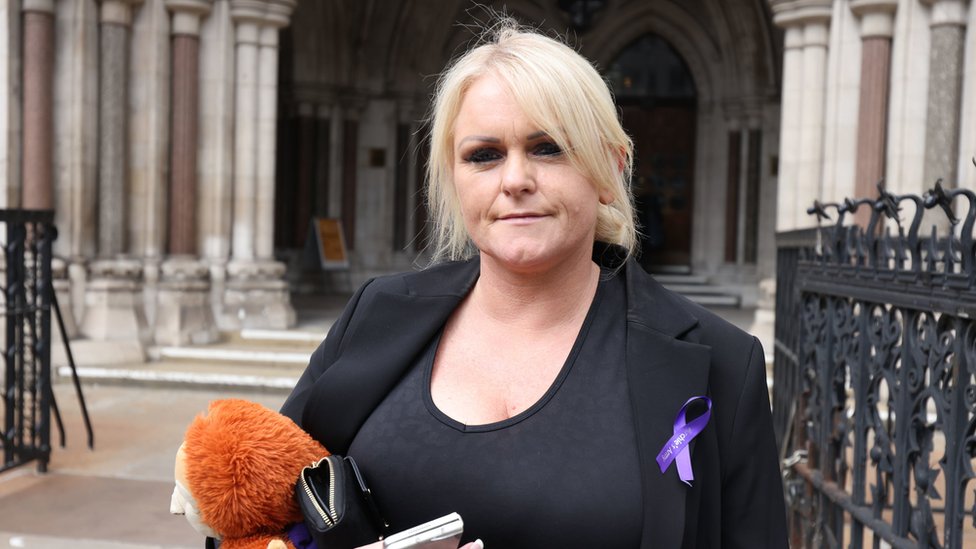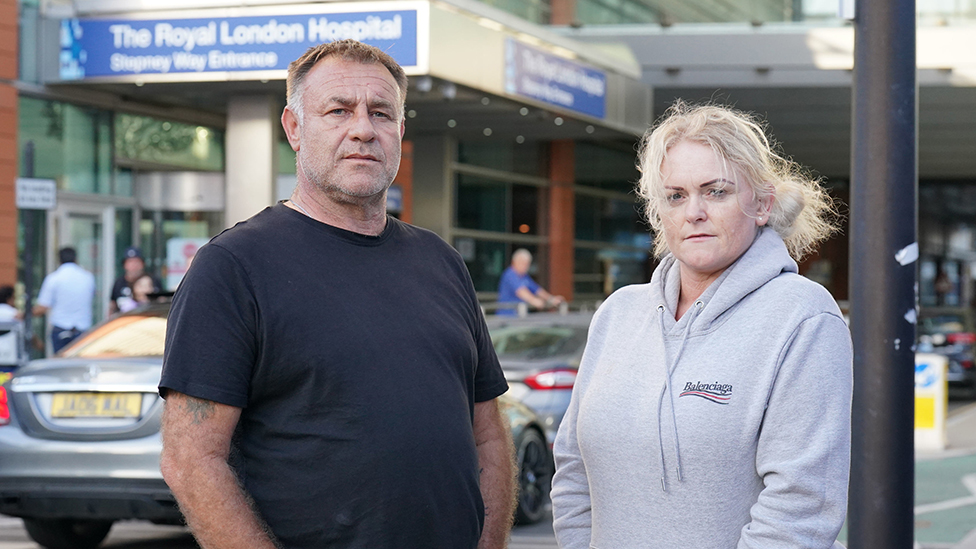Archie Battersbee's mum felt backed into a corner by court system
- Published
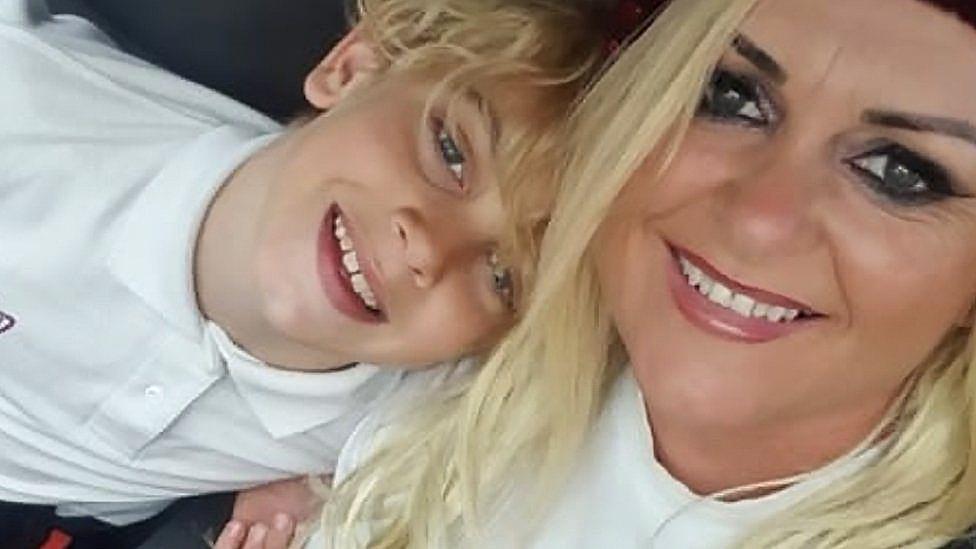
Archie's family say they want "something good to come out of this tragedy"
The mother of Archie Battersbee, who died when his life support was withdrawn, has said she felt "backed into a corner by the system".
The 12-year-old, from Southend, Essex, died on 6 August following a legal battle between his parents and doctors.
Hollie Dance said she had asked for a meeting with the health secretary to discuss the role of the NHS and High Court in cases similar to Archie's.
The Department of Health and Social Care said it had received the request.
A spokesman said: "The department was in the process of commissioning a review into the causes of disagreement in the care of critically ill children as set out in the Health and Care Act 2022."
He added the department would respond to Ms Dance's letter "in the coming days".
Reflecting on her experience, Ms Dance, 46, said she felt like she was on an "emotional rollercoaster".
She believes her son might have been taking part in an online challenge when she found him unconscious at the family home on 7 April.
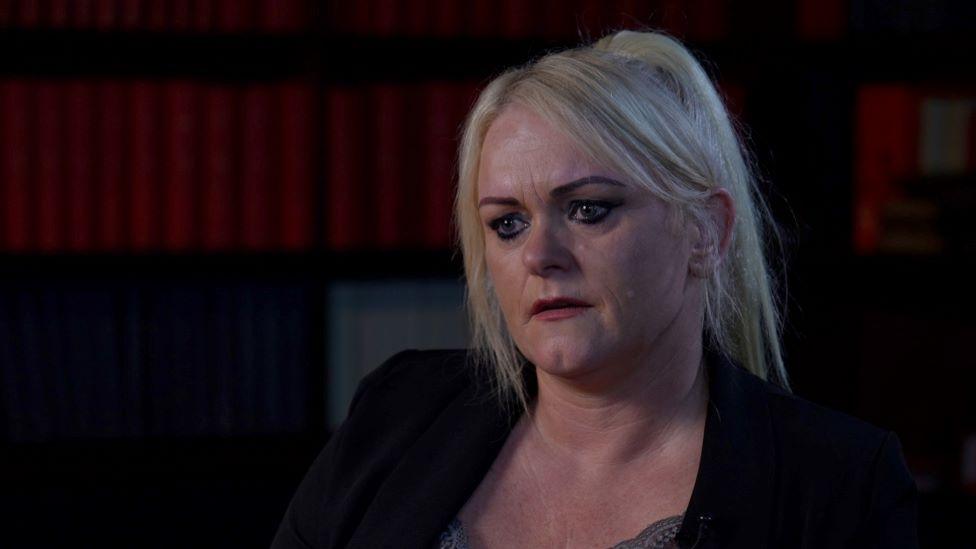
Hollie Dance has written to the health secretary asking for an urgent meeting to discuss changes to the current way of dealing with end of life cases
Doctors at the Royal London Hospital, in Whitechapel, believed it was "highly likely" Archie was brain stem dead and took the case to court, asking judges to decide what was in Archie's best interests.
However, Ms Dance has said she did not feel like her son was given enough of a chance to recover.
She said communication with Barts NHS Health Trust, which runs the hospital, "broke down from the start" after it took the case to court.
"I feel we were stripped of all our rights and backed into a corner by the system and, I've explained before, it felt like we were on trial," she said.
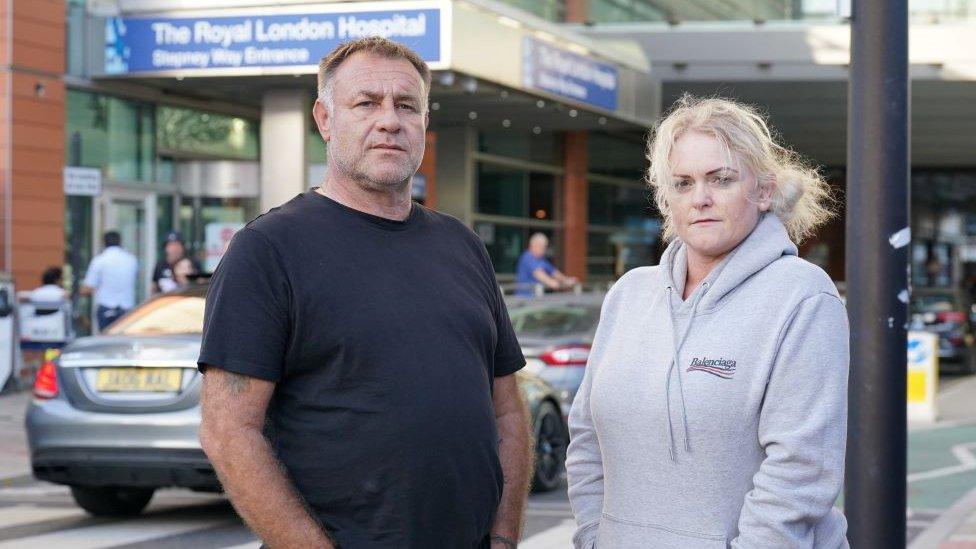
Archie's parents Paul Battersbee and Hollie Dance fought the hospital about the treatment of their son
"Change is needed. As if it's not a traumatic time enough, you're faced with fighting the system... I wasn't prepared to do that, we were backed into a corner. It was the hospital that took us to court, not the other way round."
She added: "It was hard, stressful and unnecessary, we need change."
The hospital has previously said "treatment was withdrawn in line with court rulings about his best interests".
Several court hearings were held over a four-month period.
Judges sided with the hospital, with Mr Justice Hayden of the High Court's family division saying continuing treatment was "futile" given the medical evidence.
The family had asked the courts to grant permission for them to move Archie to a hospice for his final days so they did not have to say goodbye in a busy hospital environment but their application was refused.
Doctors warned he was too unstable to move by ambulance and it would "hasten premature deterioration".
Ms Dance said Archie was surrounded by family and friends when he died but described his last moments in the hospital as "awful".
But she said she had no regrets about taking on the legal battles.
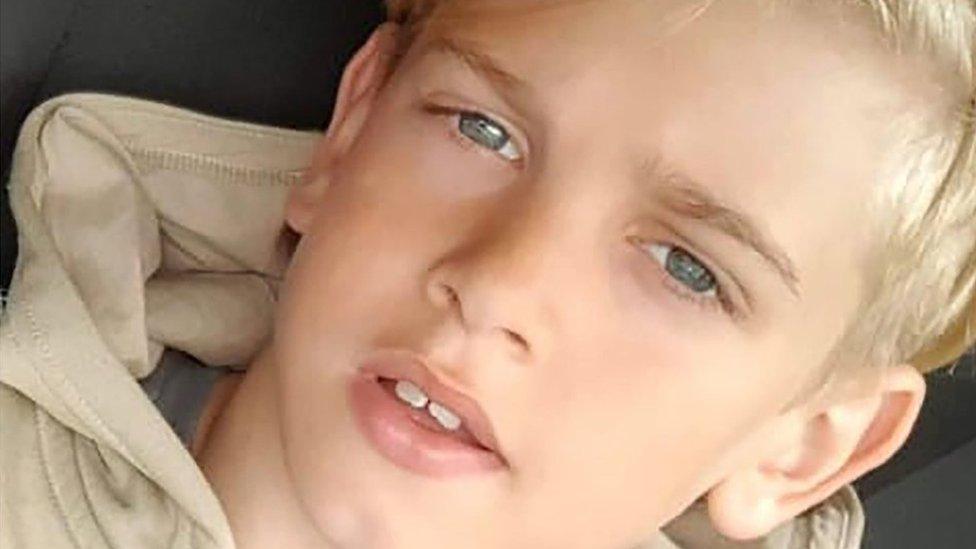
Archie Battersbee suffered brain damage in an incident at home on 7 April and did not regain consciousness
She said: "He was brilliant, I'm so honoured to be his mum. They were 12 of the best years of my life with that little boy.
"If I had to go through it again, I would still fight equally as hard for Archie or any of my children. It was awful, there was so much stress on everyone involved, it's heart breaking."
"It drained me, I was anxious all the time. I felt exhausted, it was an emotional rollercoaster," she added.
She said she had requested an urgent meeting with Health Secretary Steve Barclay to discuss the way the NHS and the Family Division of the High Court make decisions in end of life cases like Archie's. She has also called for a public inquiry.
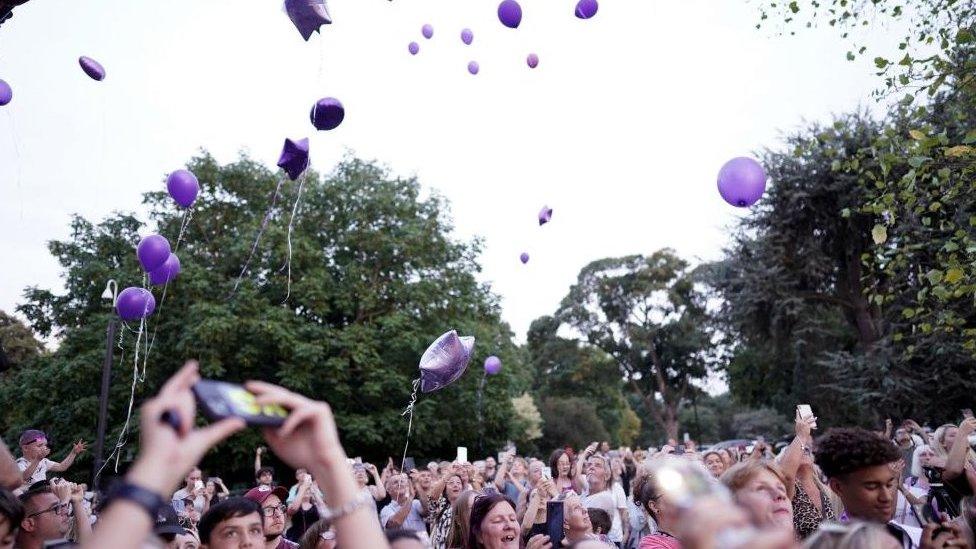
Purple balloons were released in Archie's memory at a vigil on Sunday
In the weeks since Archie died, the family has also experienced their first big milestones without him.
"It was my daughter's 21st birthday yesterday... no-one really feels in a celebrating mood," she said.
"That was hard. We went to a restaurant we'd never been to without Archie but we're getting through it... just taking every day as it comes."
Continuing to fight is one way she is trying to move forward after her son's death.
She said: "I've got to have something positive out of this tragedy.
"I'm taking each hour as it comes. One minute I feel strong, the next it's flashbacks. Then I feel OK again and then numb - it's a constant rollercoaster of emotions."

Find BBC News: East of England on Facebook, external, Instagram, external and Twitter, external. If you have a story suggestion email eastofenglandnews@bbc.co.uk, external
Related topics
- Published7 August 2022

- Published15 August 2022

- Published6 August 2022
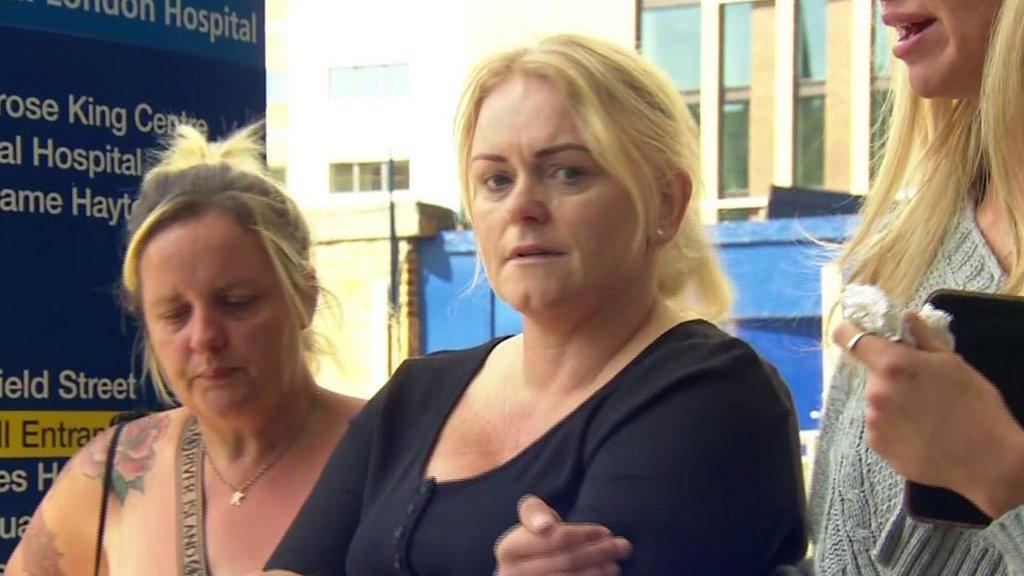
- Published6 August 2022
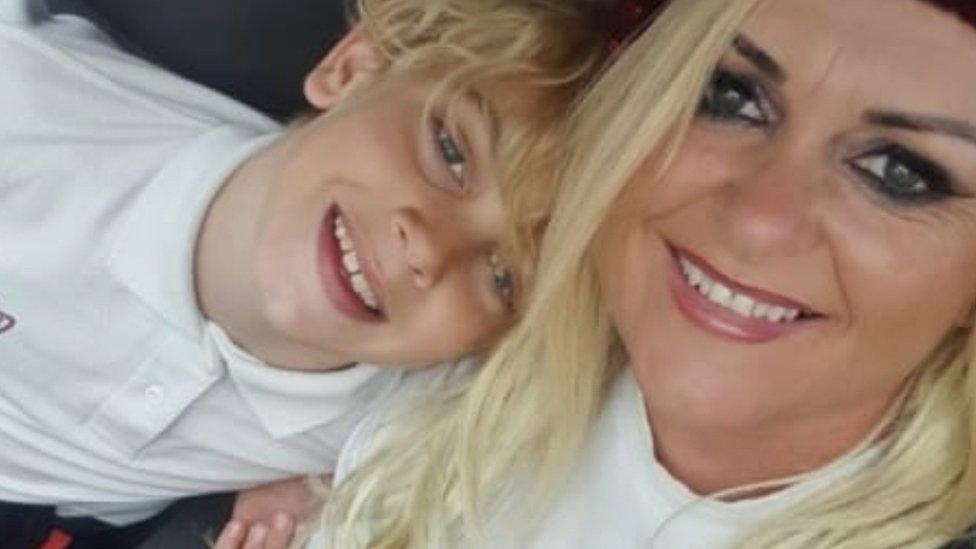
- Published6 August 2022
